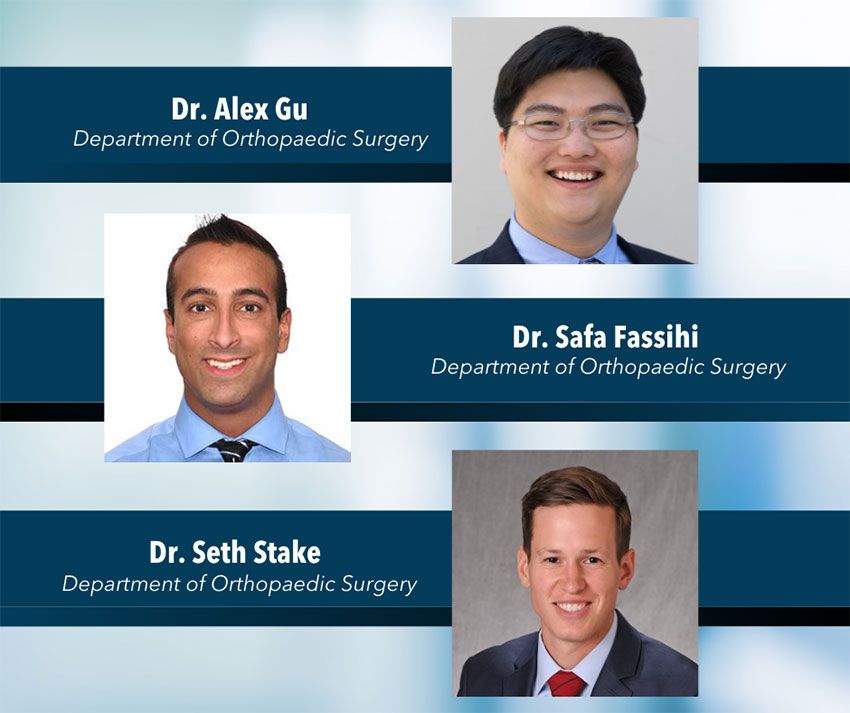
Three orthopaedic surgery residents at the George Washington University School of Medicine and Health Sciences (SMHS), Alex Gu, MD, Safa Fassihi, MD, and Seth Stake, MD, published a study in which they surveyed orthopaedic surgery resident program directors to determine how the change in the medical licensing Step 1 exam would affect residency selection. Step 1, a one-day exam, assesses how medical students can apply basic science concepts to medicine, with a focus on essential systems and principles.
The Federation of State Medical Boards (FSMB) and the National Board of Medical Examiners (NBME), which cosponsor the United States Medical Licensing Exam, also known as USMLE, adjusted Step 1 scoring from a numbered score to pass/fail. According to USMLE, this change is designed to ease the transition from undergraduate to graduate medical education.
To assess how this change could affect the residency application process, the residents, along with a team from the SMHS Department of Orthopaedic Surgery and New York City-based Hospital for Special Surgery, sent a 17-question survey to program directors. These questions included demographic information and the importance of varying factors in the interview selection process.
In analyzing the results, the team found that program directors indicated three areas of primary importance: failure in previous attempts of exams, a voluntary elective or rotation within the program director’s department, and personal knowledge of the applicant. In addition, 80% of program directors noted that they would include Step 2 clinical knowledge scores, which are numbered, when considering applicants to interview.
“Ultimately, most orthopaedic surgery resident program directors felt that this scoring change would affect the selection process and come with additional requirements,” Gu said. “They also indicated that they do not support the FSMB and NBME decision.”
Read the study, “Effect of Change in USMLE Step 1 Grading on Orthopaedic Surgery Applicants: A Survey of Orthopaedic Surgery Residency Program Directors,” in the Journal of the American Academy of Orthopaedic Surgeons: Global Research & Reviews.


